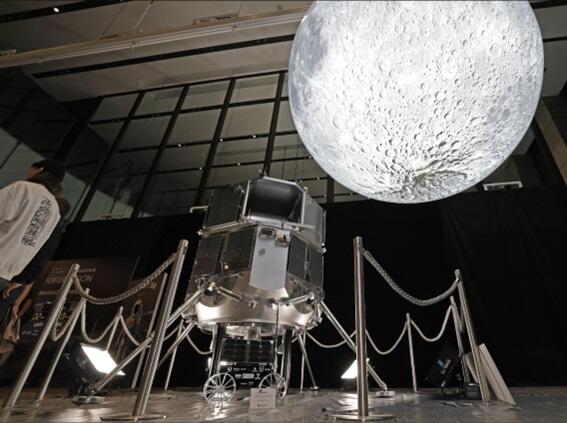Japanese startup ispace Inc. failed in its attempt to become the first private firm in Asia to touch down on the Moon when its lunar lander apparently crashed on Friday, dealing a blow as it seeks to catch up with U.S. rivals following an unsuccessful inaugural mission in 2023.
With touchdown planned for 4:17 a.m. on Friday, Japan time, the lander, Resilience, began descending from an altitude of around 100 kilometers but was unable to decelerate to the required speed, ispace said.
"Based on the circumstances, it is currently assumed that the lander likely performed a hard landing on the lunar surface," the company said, adding communication had been lost.

Provided by Kyodo News
The Tokyo-based company's CEO Takeshi Hakamada apologized to supporters at a press conference, saying the outcome was "disappointing."
The company will strive to identify the cause of the failure and make another attempt in 2027 with a new lander.
"We would like to catch up as quickly as possible" with U.S. companies that have already achieved the feat, he said.
The company's first attempt to reach the Moon's northern hemisphere in April 2023 with a different spacecraft was unsuccessful, with the lander likely having crashed on the lunar surface.

Provided by Kyodo News
Irregularities in the altitude measurement system at that time led the lander to eventually run out of fuel during descent, resulting in a free fall to the Moon's surface.
U.S. company Intuitive Machines Inc. subsequently became the first private firm in the world to successfully land a spacecraft on the lunar surface in February 2024.
Resilience, transporting a rover and equipment to carry out experiments, lifted off from Cape Canaveral, Florida, on Jan. 15, sharing a SpaceX rocket launch with U.S. firm Firefly Aerospace Inc.'s lunar lander.
Firefly's Blue Ghost, which took a different route from the ispace lander to reach the surface, touched down on the Moon on March 2.
After entering lunar orbit in May, the Japanese lander — 2.3 meters high and 2.6 meters wide — started descending shortly after 3 a.m., with a planned deceleration from 580 km to 2 km per hour by the firing of its engine toward the lunar surface.
However, data transmission stopped at an altitude of 192 meters while the lander was moving at a faster speed than expected, possibly due to the malfunction of an altitude measurement sensor.
"As of 8 a.m. on June 6, 2025, mission controllers had determined that it is unlikely that communication with the lander will be restored," ispace said in a press release. "It has been decided to conclude the mission."
Japanese Prime Minister Shigeru Ishiba expressed hope that the latest attempt by ispace will lead to "a further leap."
"My expectation for ispace will not waver," he said on the social media platform X.




